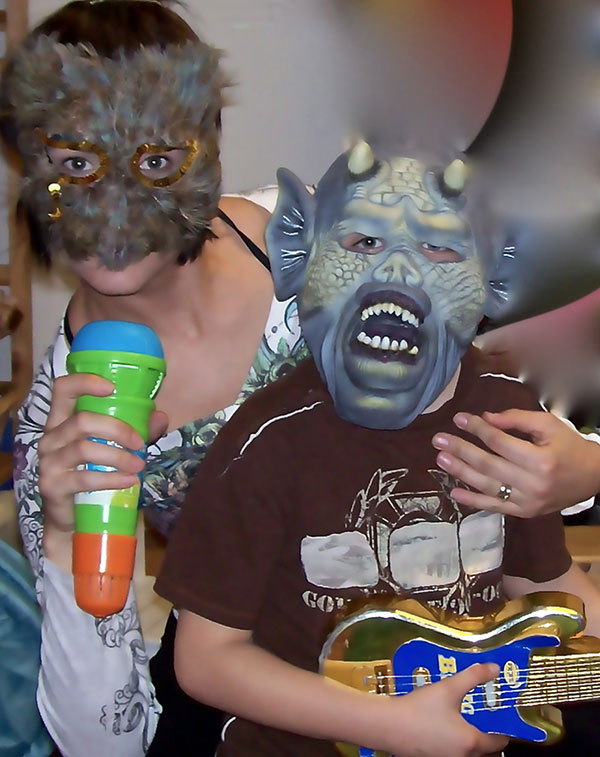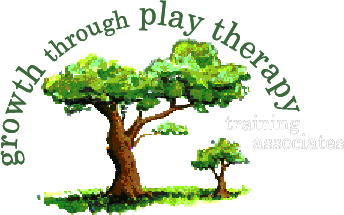Filial Therapy For Families
Filial Therapy helps parents and children form closer and happier relationships.
Filial Therapy
Note: The material in this section is adapted from Group Filial Therapy by Louise Guerney and Virginia Ryan and Filial Therapy and additional writings by Risë VanFleet. I am grateful for the opportunity over the last 20 years to have been introduced to Filial Therapy by Louise Guerney, and to have studied and trained with Barry Ginsberg and Risë VanFleet. My life has been enriched by Filial Therapy and hopefully the FT trainings that I taught during the time I was a certified trainer for Risë VanFleet and the Family Enhancement and Play Therapy Center have enriched others.
I was introduced to Filial Therapy at an all day training given by Louise Guerney in the early 2000s. At the time I was a therapist for a mother and her 5 year old son who were involved child protective services. Due to physical punishment, the boy was likely to be placed in foster care. I used elements of Filial Therapy with the family and was awed about the effectiveness of the intervention. The mother, who herself had been raised in foster care, was able to recognize her son’s love for her during a session where he handed her a toy plastic bouquet of flowers with a look of adoration on his face. She began to realize that his disturbing behavior was a result of trauma in his life and not meant as mean spirited disobedience. I realized that I wanted and needed training in Filial. And that was the beginning of my journey to become a Filial Therapist.
Filial Therapy is a special kind of play therapy developed by Louise and Bernard Guerney in the 1960s. Since then literally thousands of families have been helped by this approach. It is a unique therapeutic method that involves parents and caregivers directly as the agents of therapeutic change. FT recognizing that the most important relationship for children is with those who are raising them and it helps to strengthen the relationship.
Many play therapists practice some form of Child-Centered or Non-Directive play therapy. Filial Therapy is a closely related form of child-centered play therapy. In traditional Child-Centered Play Therapy*, the trained play therapist meets with parents or caregivers first and then works on their own with the child for a number of weeks or months. Every four weeks or so the play therapist meets with the parents to give feedback and discuss the child’s needs and progress by focusing on the themes and meaning of the child’s play rather than the details. The child’s play sessions are private and the child forms an attachment relationship with the play therapist who is deeply listening to the child’s expressed concerns during the non-directive play sessions and providing unconditional positive regard.
In Filial Therapy, the therapist teaches and supports the parent to provide non-directive play to their child and works with the parent throughout the therapy process. Thus the parent is the agent of change and the attachment relationship between the parent and child is enhanced. In the process, the parent becomes more confident as they learn additional skills and develop a deeper understanding of their child. Parents are an essential part of the healing journey and Filial therapists understand the value of involving them.
*Child Centered Play Therapy (CCPT) was developed by Virginia Axline in the 1940s and is based on Person or Client Centered Therapy developed by Carl Rogers.
Filial Therapy Overview
Filial Therapy usually takes 6 months to complete, and may last longer with follow-up sessions or if the circumstances are especially challenging. It is suitable for children between the ages of 3 and 12 years old. Filial Therapy is a very flexible model: as long as the essentials are taught to parents and followed through, it can be adapted in various ways to meet the circumstances.
The therapist’s role is to be a combination of trainer, supervisor and coach who assists parents in learning how to conduct “special playtime” sessions with the child. Each parent/caregiver has a different relationship with their child, so each play session is conducted one parent to one child, and is conducted with multiple children in the household.
Filial therapy can be taught through a group model (usually a minimum of 15-25 sessions) or offered as an individual Filial therapy intervention. Karen has had extensive experience with Filial Therapy groups and in 2001 she and her colleague, Wendy Caplin, developed a successful 12 week program, the Filial Parenting Group, as part of child abuse prevention efforts in Philadelphia.

Parent Testimonial
Katrina and Daniel adopted a large sibling group. Katrina described her experience with Filial as follows: “Before my children started Filial Therapy they were like little wild kittens – scared, insecure, fighting for their survival the best way they could and unsure about their belonging in this world… Since the time that I started to participate in the therapy with my children, I feel like we’ve grown so much closer together. My children trust me the most out of all the people they know and they are not scared to talk to me or show me their good and sad/angry emotions. Therapy has helped me understand my children better without them having even to talk about their feelings that they don’t understand. Their play tells me more than they could do themselves.”
Enhance your play therapy skills!
Karen Pernet LCSW, RPT-S
Oakland, CA 94602
510-923-0520
karen@growththroughplaytherapy.com

I would be glad to hear from you and to share information about my services: psychotherapy, general supervision for pre-licensed therapist, specialized supervision for therapists working becoming Registered Play Therapists, consultations for experienced therapists and trainings in play therapy and sandtray therapy.
